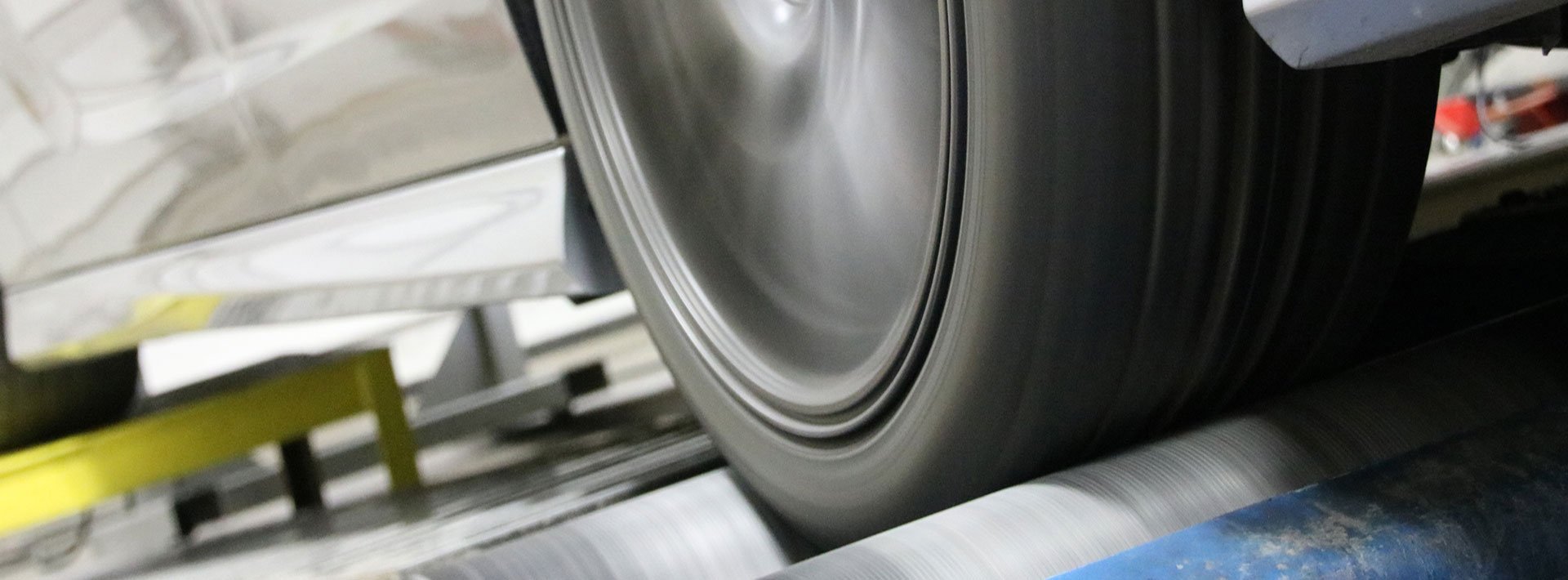JWL VIA Wheel Salt Spray Corrosion Test
The JWL VIA Wheel Salt Spray Corrosion Test is a critical procedure in automotive testing that evaluates the corrosion resistance of wheel materials and coatings. This test simulates the corrosive environment found on road surfaces, particularly in coastal or industrial areas where salt spray is prevalent. By subjecting wheels to controlled exposure to salt spray, this method assesses how well various materials withstand the harsh conditions that can lead to rust formation and structural degradation.
The procedure follows international standards such as ISO 12944-7:2016 and ASTM B117-20 for accelerated corrosion testing. The test is particularly important in ensuring compliance with automotive industry specifications, especially in regions where salt spray is a significant factor in vehicle durability.
The process involves immersing the wheel specimens in a solution containing sodium chloride (NaCl) at specific concentrations and temperatures to mimic real-world conditions. This environment accelerates the corrosion process by about 100 times relative to natural exposure, providing results within days or weeks instead of years. The test is conducted for a specified time period under controlled conditions, typically up to 500 hours.
During this time, the salt spray apparatus continuously showers the wheel specimens with a fine mist. The solution adheres to the surface and initiates corrosion processes similar to those experienced by wheels in actual use. Various parameters are monitored throughout the test, including humidity levels, temperature fluctuations, and the composition of the salt spray.
After the specified duration, the wheels are removed from the apparatus, dried, and visually inspected for signs of corrosion such as pitting, rust formation, and loss of material integrity. The results provide a comprehensive evaluation of the wheel’s resistance to corrosive elements, helping manufacturers improve their designs and materials selection.
The JWL VIA Wheel Salt Spray Corrosion Test is widely used in automotive manufacturing processes to ensure product quality and compliance with industry standards. It plays a vital role in R&D departments by providing data that can inform material choices and design iterations aimed at enhancing durability and longevity of wheels under real-world conditions.
Why It Matters
The JWL VIA Wheel Salt Spray Corrosion Test is crucial for several reasons, especially within the automotive sector. Ensuring wheel durability in harsh environments directly impacts vehicle reliability and safety. In regions with high salt content in road surfaces, such as coastal areas or industrial zones, wheels are prone to accelerated corrosion, which can lead to premature failure.
Automotive manufacturers prioritize this test because it helps them meet stringent quality standards set by international organizations like ISO and ASTM. By incorporating the results of these tests into their product development cycles, they can enhance the performance and lifespan of their products. This is particularly significant in regions where environmental factors contribute significantly to corrosion rates.
The test also supports compliance with regulatory requirements imposed on automotive manufacturers. Adhering to these standards ensures that vehicles meet safety and quality benchmarks, which are essential for market acceptance and consumer trust. The results provide valuable insights into material properties and design improvements, contributing to the overall sustainability of the industry.
- Enhanced Durability: Testing helps identify materials with superior corrosion resistance, leading to longer-lasting products.
- Safety Improvements: By detecting early signs of degradation, the test supports safer vehicle operation.
- Regulatory Compliance: Results ensure adherence to international standards and local regulations.
- Customer Satisfaction: Products that pass rigorous testing are perceived as higher quality, enhancing customer trust.
The JWL VIA Wheel Salt Spray Corrosion Test is a cornerstone of automotive R&D, supporting continuous improvement in product design and material selection. Its importance cannot be overstated, given the critical role wheels play in vehicle performance and safety.
Eurolab Advantages
At Eurolab, we offer the JWL VIA Wheel Salt Spray Corrosion Test with precision and reliability. Our state-of-the-art facilities provide controlled environments that closely mimic real-world conditions, ensuring accurate and repeatable test results.
Our experienced team of engineers and technicians ensures that every aspect of the test is conducted according to international standards, guaranteeing compliance and quality. We use high-quality equipment and reagents to produce consistent and reliable data.
The testing process at Eurolab is thorough and detailed, offering insights into not just whether a wheel meets basic standards but also how it performs under specific conditions. This comprehensive approach allows us to identify potential areas for improvement in design or material selection.
Our commitment to innovation and excellence ensures that we stay abreast of the latest developments in automotive testing technologies. We continuously invest in training our staff and upgrading our facilities to provide cutting-edge services that meet the evolving needs of the industry.





